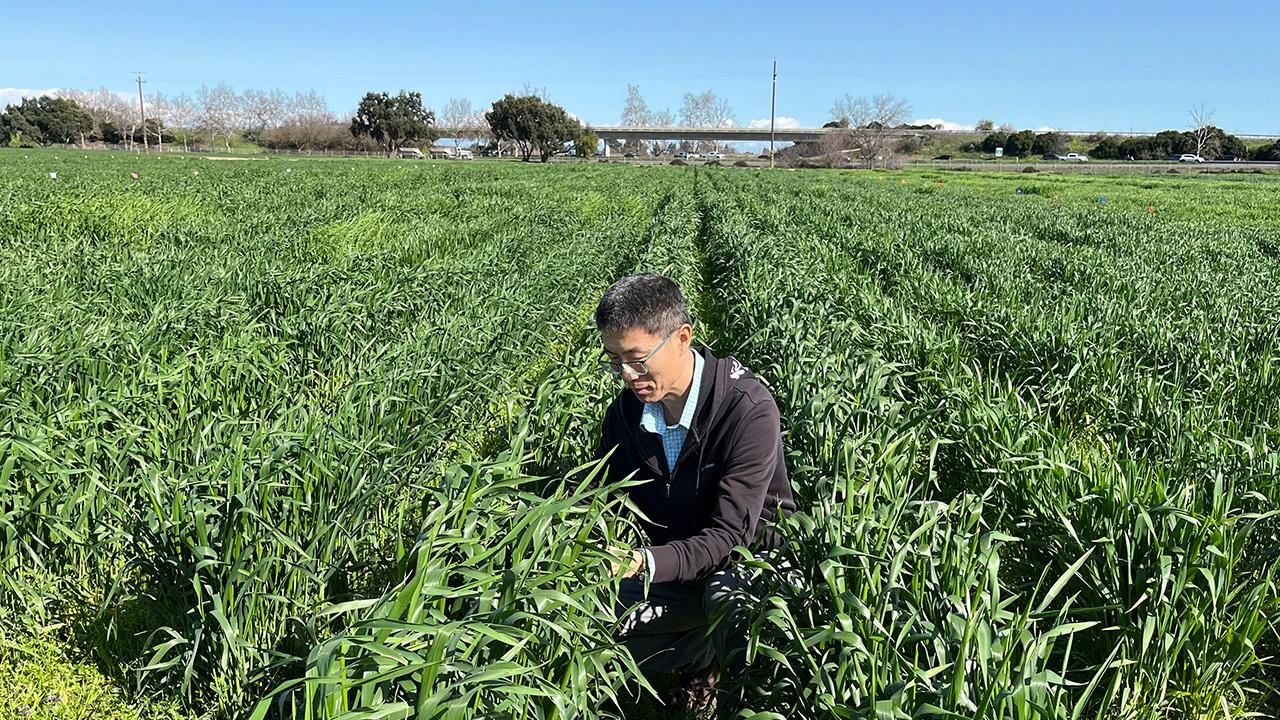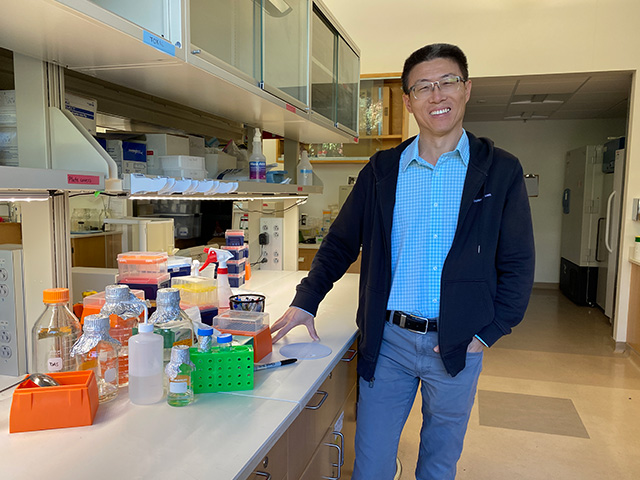
Zhang seeks better ways to breed small grains
Goals: More forage, higher yield, better quality, greater sustainability, faster development
Xiaofei Zhang started this month as an assistant professor in the UC Davis Department of Plant Sciences, specializing in molecular genetics and breeding of small grains crops. His top priority, he said, will be developing wheat varieties that are highly productive for forage and that also have high grain yield and good quality.
California growers want both. The stresses of climate change demand that these varieties be developed quickly, and be able to survive under new conditions, he added.
Zhang’s experience with small grains includes time as a breeding and research associate at the wheat and wheatgrass program at the University of Minnesota. Most recently, he has been leading the cassava breeding program in Cali, Colombia, for the International Center for Tropical Agriculture; it’s part of the research network coordinated by the Consultative Group on International Agricultural Research, or CGIAR.
Q: What is your vision for your research in the next year?

Zhang: In the next year, my research will focus on meeting the needs of small grains crop growers and consumers. The measures of success of my research are satisfied growers and consumers and a thriving community both nationally and internationally.
My research goal is to meet the ever-changing needs of both growers and consumers and help farmers grow small grains crops sustainably.
The research areas I have started exploring include:
1) Understanding the genetic and physiological requirements for increasing biomass and grain yield at the same time. This will enhance our efficiency in developing wheat varieties with high biomass for forage and high grain yield for food, which are highly demanded by growers in California.
2) Manipulating plant growth, such as studying early-season biomass accumulation and late-season grain fill, for efficient use of nitrogen fertilizer. This could help reduce the environmental impact of small grains crops and their contribution to climate change.
3) Discovering and creating novel genetic variations in wheat to develop varieties with superior end-use quality, high nutrition values and low or non-allergenic potential. The new varieties meet the needs of consumers looking for healthier food options.
4) Using advanced genomics and high-throughput phenotyping tools to speed up the development of new varieties. With these technologies, we can make the breeding process faster and get better varieties to growers and consumers sooner.
Q: Small grains are important around the world. How do you envision serving needs beyond California’s small grains community?
Zhang: The research findings from our program will be deployed through a network of collaborators in the United States and through international partnerships with CGIAR Centers like CIMMYT and ICARDA.
Q: Why did you want to come to UC Davis?
Zhang: UC Davis ranks No. 1 in the world in plant and animal sciences. It is a great honor to join the top university working on small grains crop breeding. Work at UC Davis includes wheat, durum wheat, barley, oats and triticale. These crops are crucial for feeding people around the world and for ensuring global food security.
With more than 10 years of experience in plant genetics and breeding, I have led global breeding projects at CGIAR, the world’s largest global agricultural innovation network. I am thrilled to join the Department of Plant Sciences and commit to developing science-based solutions for the challenges small grains crop farmers and consumers face.
More about Zhang
Zhang studied agronomy and plant breeding in China, with a doctoral degree from the University of Chinese Academy of Sciences. He earned leadership certificates through Cornell University; and he has been involved with more than 30 peer-reviewed publications including Theoretical and Applied Genetics, The Plant Genome, Annual Review of Plant Biology, and Journal of Experimental Botany.
In the past 10 years, Zhang has won grants totaling several million dollars from organizations including the Bill and Melinda Gates Foundation. Research topics include both crop research and programs to upgrade infrastructure to improve breeding research.
His faculty bio page is here.
Media Resources
- Trina Kleist, UC Davis Department of Plant Sciences, tkleist@ucdavis.edu, (530) 754-6148 or (530) 601-6846
